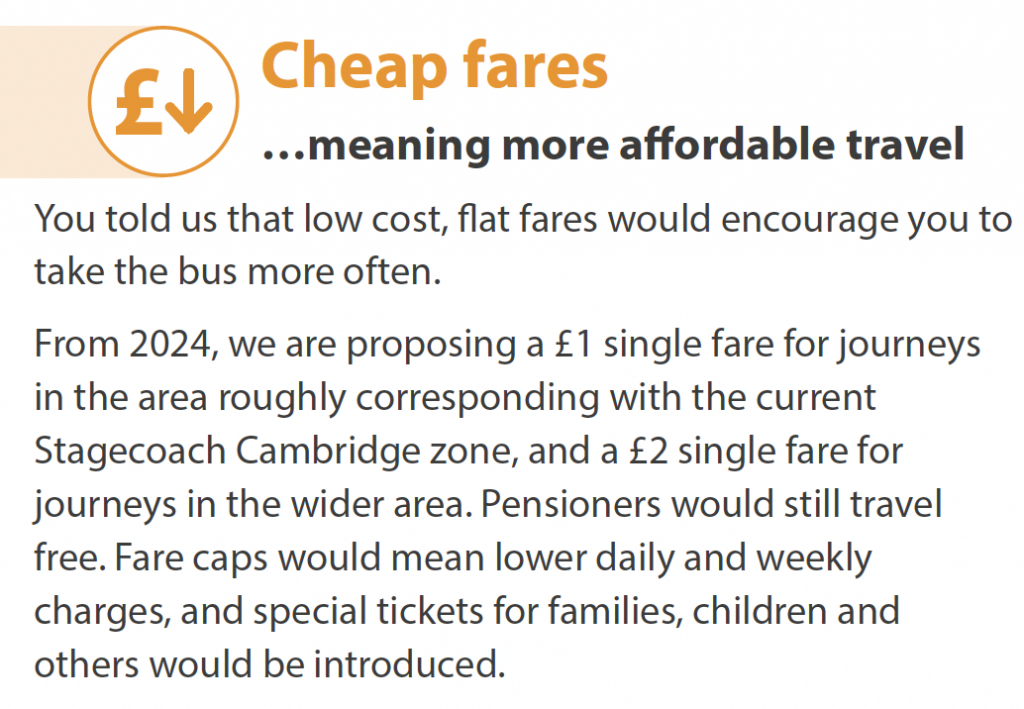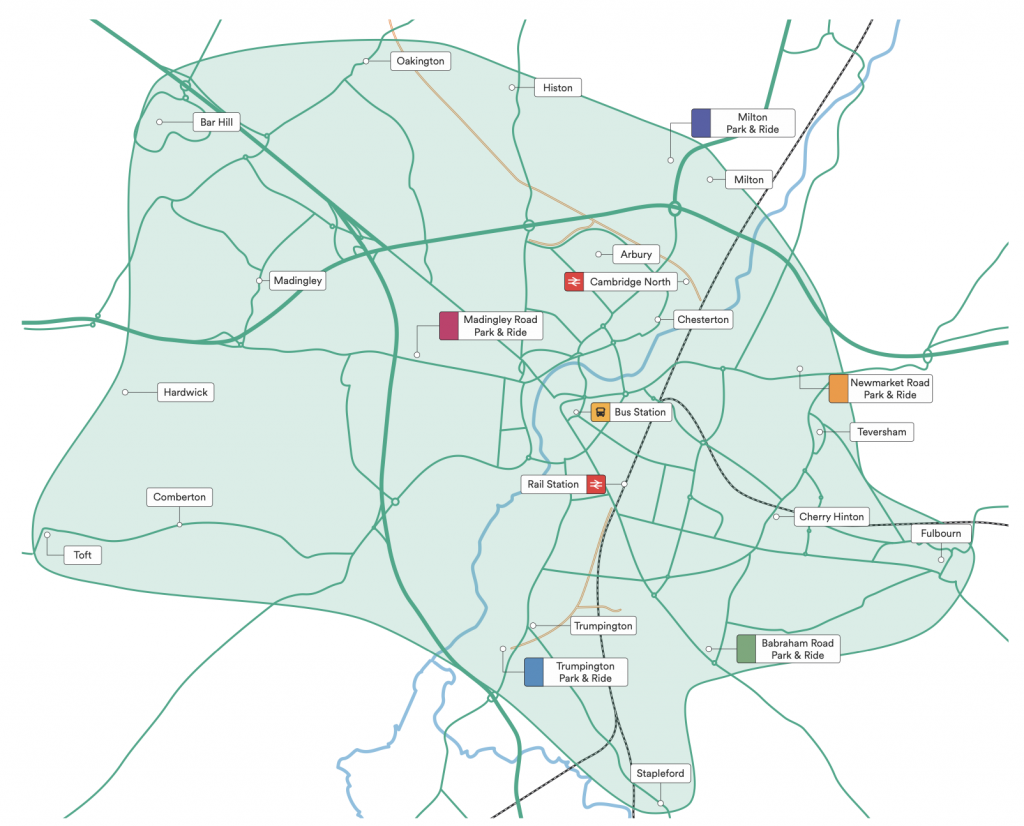The Zone has been musing on the headline bus fare figures from the Greater Cambridge Partnership (GCP), which a Sustainable Travel Zone (STZ) is required to support. Are the headline fares for a single journey in the Greater Cambridge area good value?

Firstly let us take a look at just one offering from Stagecoach. Specifically the Cambridgeshire Plus 28-Day MegaRider ticket. This ticket covers all travel for 28 days within the white area below, which the £2 per journey area would cover. You could zip around on the buses all day and not pay a penny more. This ticket is commercially priced, which Stagecoach can offer and remain profitable.

That is quite an area where the GCP proposals will set you back £2 per journey. So let us dust off our abacus and get clicking away.
The Cambridgeshire Plus 28-Day MegaRider ticket will cost you £92.40 as of 15 November 2022. After some furious clicking on the abacus, this equals £3.30 per day for 28 days. Not too bad.
However, the GCP price of £2 per journey means getting back to where you started needs two journeys. So you are required to pay £4. If you were to travel for the same 28-day period, it would cost you £112. So, for this example, the GCP £2 fare will cost you an extra £19.60 for 28 days of travel. If you were to make more than two journeys per day you will pay even more.
Secondly, let us peek at the £1 inside Cambridge fare. We shall again use Stagecoach, but this time the Cambridge 28-Day MegaRider ticket. This ticket covers a broader area than the GCP proposes for their £1 fare.

The Cambridge 28-Day MegaRider ticket will set you back £58.80 as of 15 November 2022. After more work with the abacus, this equals £2.10 a day. The GCP fare of £1 per journey obviously will cost you £2 if you want to get home again. So the GCP wins by £0.10 for the day. However, if over these 28 days you make just three more journeys, the Stagecoach fare becomes cheaper. So for a simple two trips per day commuter who goes nowhere else by bus, the GCP fares are a winner here.
The GCP made a post on Twitter to state there would be a far cap of £4 in any given day.

This is news, as no previous reference has been made to this. The only reference available before was a Technical Note: Bus Proposition Design Summary Paper that have two potential options. However, even this cap at £4 a day makes the GCP farer more expensive than the current Stagecoach offerings.
Why is all this important?
Well, if the new bus network happens, and especially if a franchise model comes in, these GCP fares are the ones you will have to pay. The Council would set all the fares, routes, and timetables as part of the tender for the franchise.
Whilst you may get more buses, though the frequency remains much the same out of Cambridge, you get to pay more for using them. The cheaper fares will not be available to you.
Remember that within Cambridge the STZ charges for the movement of vehicles within the zone, the aim to move people over to buses and cycles. They want you make more journeys by bus. Even with the daily caps, the current Stagecoach ticket is significantly cheaper than the GCP £1 per journey.
Does this equate to Cheaper and more affordable travel?
The Zone acknowledges this is just a simple view of the world and doesn’t encompass the vast sums of public money the GCP wishes to spend to create a whole alternative transport network within the bounds of Cambridge. However, it seems odd to spend £100’s million to have the bus users pay more.
A number of the GCP members, in response to questions, have been adding that ticket deals will be available. Such a family, daily, weekly tickets etc. The Zone is impressed by this proactive action on their part. Unfortunately, the GCP financial business case is based on £1 / £2 fares, with no expectation of these cheaper fares. So either the financial business case is fundamentally flawed, or the GCP members are providing their own narrative rather than the actual proposal in hand.
